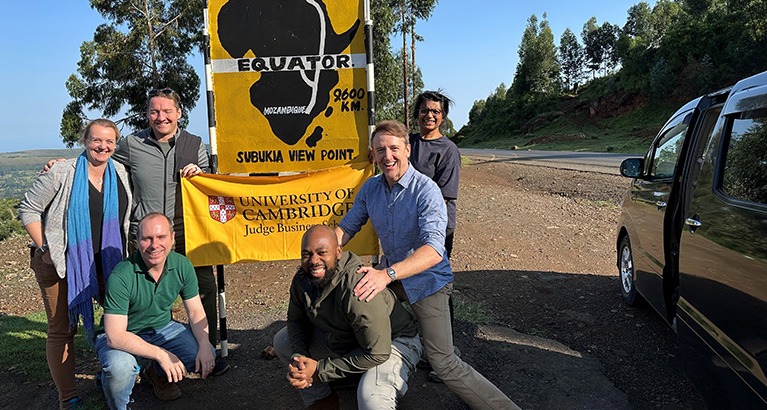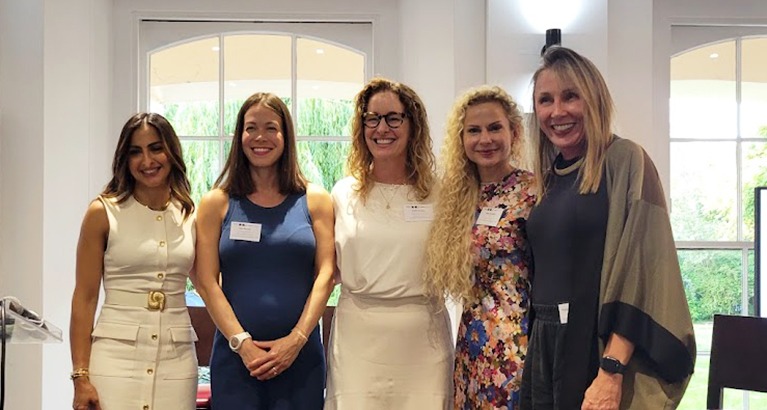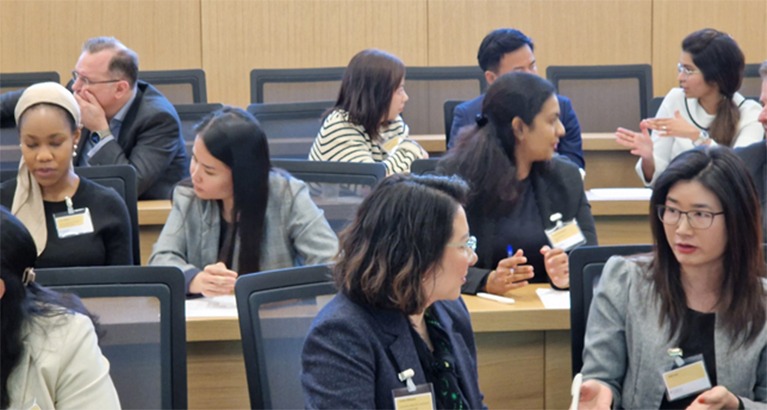The Team Consulting Project is a collaboration between an external organisation and Executive MBA (EMBA) participants acting as a team of consultants. The project may cover any business challenge or opportunity faced by their client. Participants can work with any company, not-for-profit organisation or public sector organisation of their choice. Over an extended period, the team delivers agreed outcomes and receives client feedback. Each participant is assessed on how they reflect on their learning experience as part of the Management Praxis course.
Dharshanie Mahadeva (EMBA 2022) shares her experiences of her Team Consulting Project working in Kenya with the Bill and Melinda Gates Foundation.
What is your current role?
Last year, I transitioned to a new role as a Low Carbon Fuels Trader, relocating during my EMBA to pursue a different career path. This position involves trading Europe’s regulated carbon markets and demands a thorough grasp of European climate policy, especially the suite of policies under the European Green Deal aimed at decarbonisation and achieving zero emissions across the continent. While my primary focus is on trading biofuels in Europe, the role also necessitates keeping abreast of other compliance carbon markets, such as the EU Emissions Trading System (EU ETS), as global climate targets drive policy convergence and market opportunities.
Why did you choose this project?
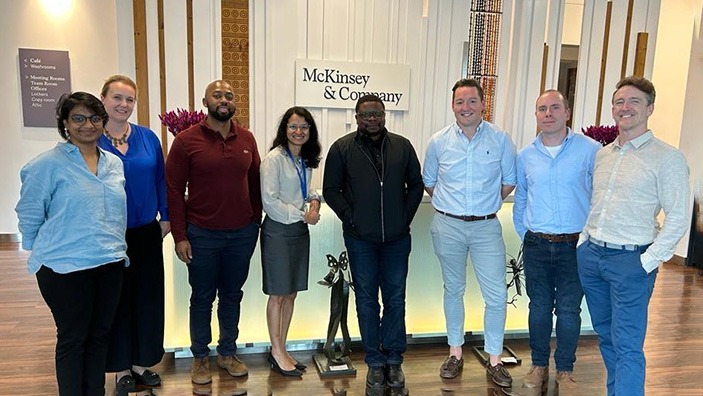
In my first term on the EMBA, I knew I wanted to do my Team Consulting Project (TCP) with the Bill and Melinda Gates Foundation. I had been following their climate initiatives for years and was eager to contribute in my own small way. After persistent efforts, including LinkedIn stalking (!) and phone calls, I managed to connect with the Director for Agriculture over lunch. What had initially been planned as a 30-minute discussion evolved into a productive 2-hour conversation, laying the groundwork for the project. Next, we gathered a team to move forward, and I was fortunate to find people who were passionate about joining a not-for-profit TCP.
What were your key findings?
In Africa, agricultural and livestock emissions contribute to nearly 60% of greenhouse gas (GHG) emissions while, globally, methane emissions from livestock (for example cow farts and burps) contribute to almost 6% of total GHG emissions. Our Team Consulting Project focused on identifying offtake models that would enable access to international voluntary carbon markets for African farmers striving to reduce greenhouse gas emissions from their livestock. A key finding was that, due to the involvement of multiple intermediaries resulting in long chains, the revenue from carbon credits often dwindled significantly by the time it reached the farmers, the actual generators of these credits.
Despite this, it was inspiring to see that the adoption of sustainable regenerative practices was viewed not merely as a response to financial incentives from carbon credits, but as a fundamental way of life. Effective transitions go beyond financial tools. They demand a re-evaluation of our approach, creative thinking, and the integration of sustainable practices into our daily lives and businesses. This is exactly the approach we saw in Kenya, which was motivating to see.
Did anything about the Executive MBA Team Consulting Project surprise you?
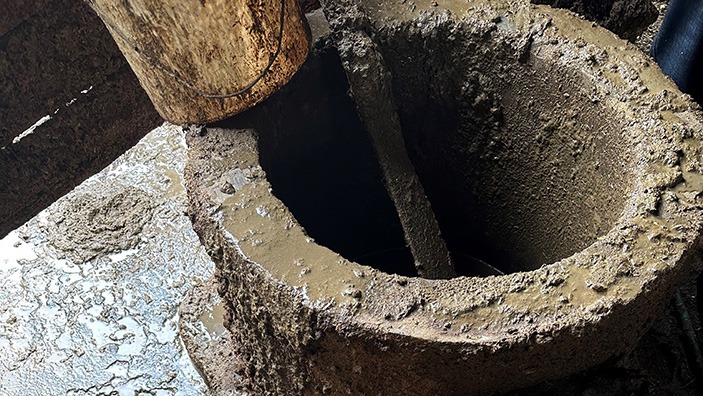
On one of our journeys, we came across a farm that demonstrated an ingenious solution to the problem of excess manure. Picture this: a large pit dug deep into the earth, filled with cow manure. But this wasn’t just any pit. It was a natural methane compressor. By burying the manure, the farm captured the methane it produced, converting it into biogas. A simple pipe led from the pit straight to a cooker in the farmhouse. This straightforward yet powerful method turned farm by-products into a valuable resource, showcasing innovation at its finest. By converting waste into renewable energy, these farmers reduce reliance on traditional fuels, mitigate deforestation and air pollution, and improve soil health.
It was surprising yet refreshing to see biogas working seamlessly with a simple infrastructure and, more importantly, without the need for policy and mandates – especially since some European countries still struggle with integrating biogas into their clean energy policies, and those that do so often lack sufficient conversion capacity for excess cow manure feedstock.
How do you think the Team Consulting Project will impact you in your future career?
My current role focuses on the regulated carbon market, and being exposed to the voluntary carbon market has been an eye-opening experience. It has brought a diversity of views that enrich my understanding and approach when trading in the regulated markets, which often feel like a world apart. However, the most profound impact has been a renewed dedication to advancing the transition to net zero and a recognition of the extensive effort needed to achieve this goal worldwide.
What was the impact on you as a person?
My time in Kenya was truly eye-opening. Hanging out with friends from my cohort and doing meaningful work was incredibly fulfilling and inspiring. It’s an experience that will stay with me for the rest of my life.
During our travels covering nearly 600 km to meet various stakeholders, we unexpectedly had a great deal of fun, especially during field interviews conducted in Kenya’s largest conservancies. These involved long drives within conservancies, allowing us to witness the splendour of animals in their natural habitat. On one such drive to meet a team who were looking after local livestock, we encountered the last two remaining northern white rhinos in the world.
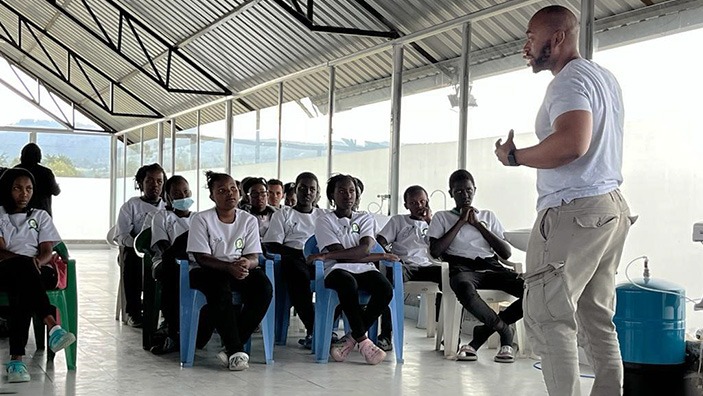
Perhaps the biggest impact, however, is the realisation of the size of the climate challenge we have on our hands. Growing up in Sri Lanka, I’ve seen firsthand the challenges that developing economies face. Through the Team Consulting Project (TCP), I was reminded of the urgent need to address climate change, especially its disproportionate impact on communities in Africa and Asia that rely on agriculture. Increased droughts and floods devastate crops, dry out soil, and reduce livestock productivity – something we heard firsthand from our field interviews with subsistence farmers. The effects don’t stop there; they lead to frequent crop failures and severe food shortages, worsening malnutrition and increasing vulnerability to disease, particularly among poor farmers who often lack the savings to buy essentials. My experience in Kenya has left a lasting impression, both professionally and personally. The TCP has broadened my perspective on climate challenges and reinforced my commitment to climate action. For this, I will be forever grateful to the Bill and Melinda Gates Foundation.
On a side note, the TCP gave me the chance to reconnect with a friend from my time at Newnham College at Cambridge, where we both did our PhDs over a decade ago. I was incredibly proud to see the school she has established, Children in Freedom, in Kenya, realising her long-held dream. Being able to visit the school and spend time with her students as a group, also sharing with them our project findings, exemplifies the enduring bonds forged at Cambridge – friendships that last a lifetime, just like those formed through the TCP and the EMBA.
Executive MBA programmes
The Cambridge Executive MBA and Global Executive MBA are 20-month programmes for senior executives who want to apply their knowledge and skills as they learn.


